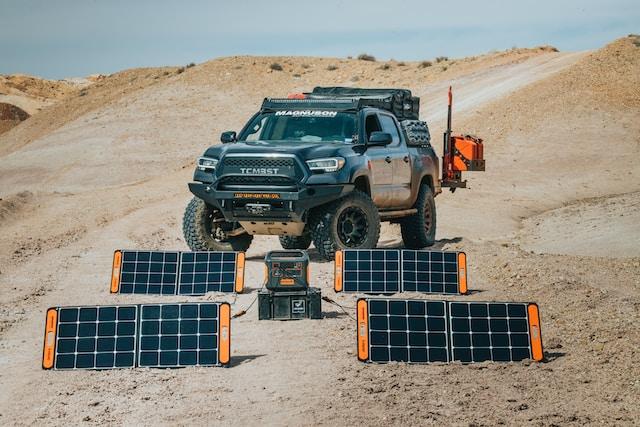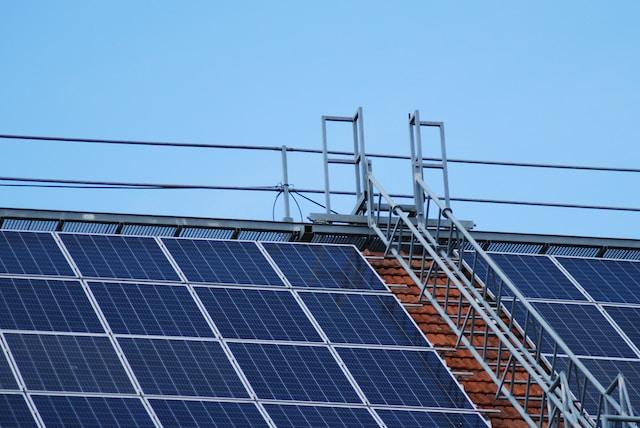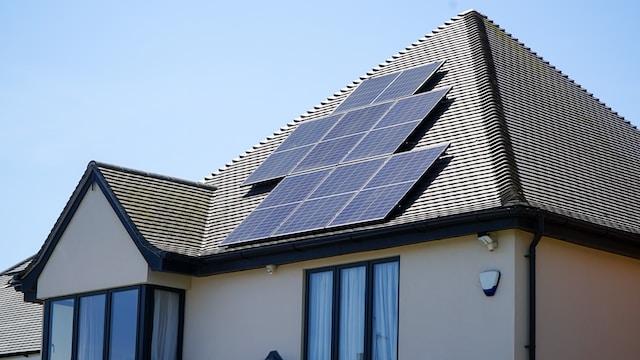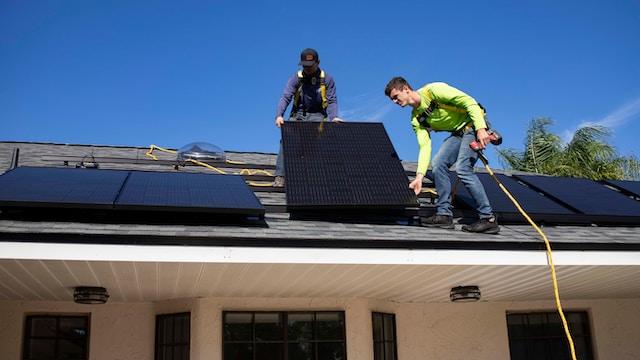
Exploring the Different Types of Solar Panel Systems: A Comprehensive Guide
Introduction
In today's environmentally conscious world, solar panel systems have emerged as a crucial and sustainable solution for powering our homes and businesses. These clean, renewable energy systems harness the sun's energy to provide electricity, offering numerous benefits such as reduced carbon emissions and long-term cost savings. As more people embrace eco-friendly living, understanding the various types of solar panel systems becomes increasingly important. Our comprehensive guide aims to delve into the intricacies of these systems, providing insights into their components, functionality, and unique advantages. By examining grid-tied, off-grid, hybrid, and portable solar panel systems, we empower our readers with the knowledge required to make informed decisions regarding the most suitable option for their specific needs. Join us on this enlightening journey to discover the immense potential of solar power and the diverse solar panel systems available in the market.
The Basics of Solar Panel Systems
Before diving into the different types of solar panel systems, it's essential to understand the basic components and how they work together to generate electricity. A solar panel system typically consists of four main elements: solar panels, an inverter, batteries, and mounting hardware. Solar panels are the heart of the system, responsible for capturing sunlight and transforming it into usable electricity. These panels contain solar cells, which come in three main varieties: monocrystalline, polycrystalline, and thin-film. Monocrystalline cells, made from a single crystal structure, offer the highest efficiency and longevity, while polycrystalline cells are more cost-effective but have slightly lower efficiency. Thin-film cells, on the other hand, are lightweight, flexible, and more affordable, yet they possess the lowest efficiency of the three. The electricity produced by solar panels is direct current (DC), which must be converted into alternating current (AC) for household use. This critical conversion is achieved through the inverter, another fundamental component of the solar panel system. Once the inverter processes the electricity, it can be utilized by the electrical appliances in your home or stored in batteries for later use. Batteries play a crucial role in off-grid and hybrid solar panel systems, ensuring energy is available even when sunlight is scarce. Finally, the mounting hardware is designed to securely fasten the solar panels to rooftops or other structures, while ensuring optimal positioning for maximum sunlight exposure. Understanding the basic components and functions of solar panel systems lays a strong foundation for exploring the various types available. With a firm grasp on the fundamentals, you'll be better equipped to choose the solar panel system that meets your unique energy needs, preferences, and budget.
Grid-Tied Solar Panel Systems
As you explore various solar panel systems, one popular option you'll encounter is the grid-tied system. Grid-tied solar panel systems are directly connected to the local utility grid, allowing you to draw electricity from the grid when your solar panels aren't producing enough energy to meet your needs. This connectivity offers several key benefits, including lower upfront costs due to the absence of battery storage, as well as the assurance of a continuous power supply through access to grid-supplied electricity. An additional advantage of grid-tied systems is the opportunity to participate in net metering, a billing arrangement that credits solar energy system owners for the surplus electricity they generate. With net metering, excess power produced by your solar panels is fed back into the grid, essentially turning your electric meter backwards. This process allows you to offset the cost of electricity consumed during times when your system isn't generating sufficient power, further increasing the cost-effectiveness of solar energy. Despite the numerous benefits of grid-tied solar panel systems, there are some potential drawbacks to consider. One significant concern is the reliance on the utility grid, which can lead to a lack of power during grid outages. Since grid-tied systems are unable to operate independently, they automatically shut down during blackouts to protect utility workers from potential electrical hazards. This means that even if your solar panels are producing electricity, you won't be able to access it during an outage without battery backup. Understanding the benefits and drawbacks of grid-tied solar panel systems can help you make an informed decision when selecting the best solar solution for your home or business, ensuring you optimize energy production and cost savings.
Off-Grid Solar Panel Systems
For those seeking energy independence, off-grid solar panel systems present an appealing alternative to traditional grid-tied systems. As the name suggests, off-grid systems operate independently from the utility grid, providing a self-sufficient source of electricity. This autonomy makes off-grid systems an attractive option for remote locations where connecting to the grid is either challenging or prohibitively expensive. One key difference between off-grid and grid-tied systems lies in energy storage. Off-grid solar panel systems rely on battery banks to store the electricity generated by solar panels, ensuring a consistent power supply even during periods of low sunlight or during nighttime hours. Advances in battery technology, such as the introduction of lithium-ion batteries, have significantly improved the efficiency and lifespan of off-grid energy storage solutions. The advantages of off-grid solar panel systems extend beyond self-sufficiency and remote location installation. These systems offer increased control over energy consumption, contributing to a reduced environmental footprint and potentially lower long-term energy costs. Moreover, off-grid systems provide a reliable power source during utility outages, ensuring uninterrupted access to electricity. However, it's essential to consider the potential challenges associated with off-grid solar panel systems. These systems typically have higher upfront costs, primarily due to the investment in battery storage. Additionally, off-grid systems may require more regular maintenance to ensure the batteries and other components continue to function optimally. When evaluating whether an off-grid solar panel system is the right fit for your needs, it's crucial to weigh the advantages of energy independence against the potential challenges of higher initial costs and maintenance requirements. With careful planning and consideration, an off-grid solar panel system can be a rewarding investment in sustainable, self-reliant living.
Hybrid Solar Panel Systems
For those seeking a balanced approach to solar energy, hybrid solar panel systems offer a versatile solution that combines the best features of both grid-tied and off-grid systems. As the name implies, hybrid systems integrate the convenience of grid connectivity with the energy independence offered by battery storage. This dual approach allows homeowners to harness the benefits of both systems, maximizing flexibility and adaptability. Hybrid solar panel systems function by intelligently switching between grid-supplied electricity and battery power, based on the energy demands of the household and the amount of solar-generated electricity available. When solar production is high, excess energy is stored in the batteries for later use, while surplus power can also be fed back into the grid through net metering. During times of low solar production or increased energy demand, the system can seamlessly draw electricity from the grid or the battery bank as needed. The benefits of hybrid solar panel systems are numerous, offering a unique blend of flexibility, energy independence, and access to grid electricity when needed. By providing a backup source of power during grid outages, hybrid systems ensure uninterrupted access to electricity, while also allowing homeowners to take advantage of grid-supplied power during periods of low solar production. However, potential challenges should be considered when evaluating hybrid solar panel systems. These systems often come with higher upfront costs due to the need for battery storage and more complex system components. Additionally, the increased complexity of hybrid systems may necessitate professional assistance for installation and maintenance, adding to the overall cost. Ultimately, hybrid solar panel systems provide an attractive middle ground between grid-tied and off-grid solutions, allowing homeowners to reap the benefits of both approaches while mitigating potential drawbacks. This flexible, adaptable option is worth considering for those interested in maximizing the advantages of solar energy.
Portable and Flexible Solar Panel Systems
In addition to traditional stationary solar panel systems, portable and flexible solar panel systems offer a dynamic solution for temporary or mobile energy needs. Designed for ease of transport and installation, these systems are perfect for a variety of applications, such as camping, boating, or powering remote work sites. Their adaptable nature makes them an attractive option for those seeking renewable energy on the go. Portable and flexible solar panel systems utilize lightweight, pliable solar panels that can be easily rolled or folded for transport, simplifying the process of setting up and breaking down a temporary installation. They can be connected to portable battery banks or power stations, providing an off-grid energy source for charging devices, powering appliances, or even running small tools at remote locations. Some portable systems even feature integrated USB ports, allowing for direct charging of smartphones, tablets, or other electronic devices. The advantages of portable and flexible solar panel systems include their portability, adaptability, and ease of use. These systems enable users to harness the power of the sun in a variety of settings, without the need for permanent installations or grid connections. Additionally, the ability to transport and store these systems compactly makes them ideal for outdoor enthusiasts, travelers, or anyone in need of mobile power solutions. However, potential drawbacks should be considered when evaluating portable and flexible solar panel systems. Due to their smaller size and design constraints, these systems typically have a lower power output compared to their stationary counterparts, which may limit their ability to meet higher energy demands. Additionally, the durability of portable and flexible solar panels can be a concern, as they may be more susceptible to damage from repeated folding, rolling, or exposure to harsh environmental conditions. Despite these potential drawbacks, portable and flexible solar panel systems offer an innovative, adaptable option for those seeking solar energy solutions in a range of mobile or temporary applications.
Choosing the Right Solar Panel System for Your Needs
Selecting the ideal solar panel system for your unique needs requires careful consideration of various factors, including location, energy consumption, budget, and local incentives. Each solar panel system type comes with its own set of advantages and drawbacks, making it crucial to weigh these aspects in light of your specific requirements and long-term goals. Location plays a critical role in determining the efficiency and effectiveness of a solar panel system. Factors such as the amount of sunlight, roof orientation, and shading can impact the overall performance of your solar installation. Energy consumption is another essential aspect to consider, as understanding your household's energy needs will help you select the appropriate system size and type. Your budget will also influence your decision, as the initial investment and long-term savings associated with solar energy can vary depending on the system you choose. Furthermore, it's important to research any local incentives, such as tax credits or rebates, which can help offset the costs of installing a solar panel system. Consulting with professional solar installers or energy advisors can prove invaluable in determining the best system for your specific situation. These experts can assess your property, evaluate your energy consumption, and recommend the most suitable solar panel system based on your needs and goals. They can also help navigate local permitting requirements and incentive programs, ensuring a seamless and cost-effective installation process. Ultimately, choosing the right solar panel system requires a thorough understanding of the various options available, as well as an honest assessment of your energy needs, budget, and long-term objectives. By carefully evaluating these factors and seeking professional guidance, you can make an informed decision that maximizes the benefits of solar energy for your home or business.
Conclusion
In conclusion, solar panel systems offer a variety of options to suit diverse needs, including grid-tied, off-grid, hybrid, and portable systems. Each type comes with its unique features and advantages, such as cost-effectiveness, energy independence, flexibility, and portability. Choosing the right solar panel system is essential to maximize the benefits of this clean and renewable energy source. Careful consideration of factors like location, energy consumption, budget, and long-term goals, as well as consultation with professionals, will help you make an informed decision that best meets your unique requirements. Embracing solar energy not only contributes to a more sustainable future but can also lead to significant long-term cost savings. We encourage readers to continue exploring solar power as an eco-friendly and responsible choice for powering homes and businesses, joining the global movement toward greener energy alternatives and a brighter future.
Apr 4, 2023
Share:
Fresh off the Press
Continue reading
Newsletter
Your journey towards a sustainable lifestyle starts here!
Join our newsletter for the latest on solar panels and clean energy breakthroughs.







